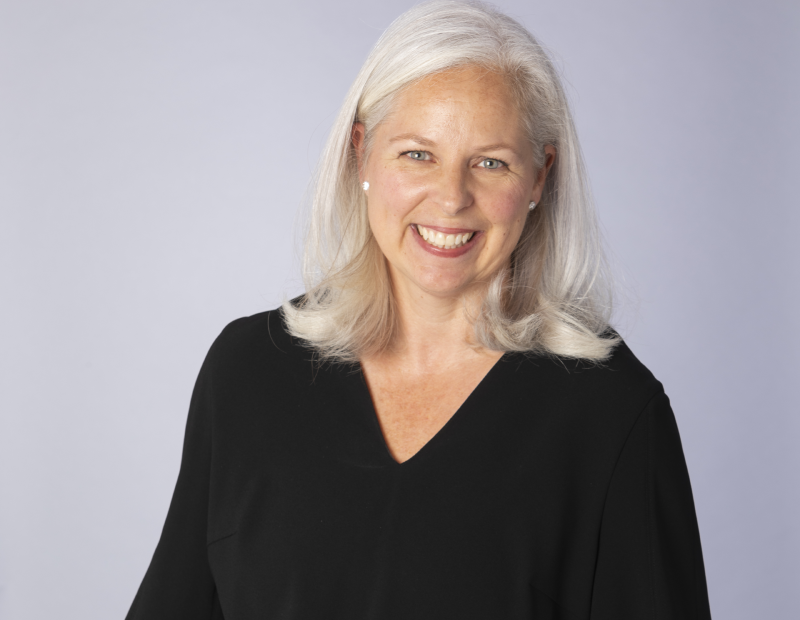Lending Amid COVID-19: Q&A
Drawing on lessons learned from the Great Recession, lenders and investors are adjusting their approaches to a capital markets environment disrupted by the pandemic, says Chris Stewart of Centennial Bank.

Chris Stewart, Market President, Tampa Bay Region, Centennial Bank. Image courtesy of Centennial Bank
In light of the ongoing health crisis and ensuing economic fallout, some lenders have taken a step back. Those wanting to stay active have adjusted their approach and underwriting standards to align with current economic circumstances.
In this interview, Chris Stewart, market president of the Tampa Bay Region at Centennial Bank, explains how his institution has forged ahead and continued to close deals since the onset of COVID-19.
READ ALSO: CMBS Delinquencies Appear to Stabilize—For Now
How has Centennial Bank maintained its lending activity?
Stewart: Fortunately, due to technology, we can keep deals moving forward. Being a relationship-based bank, however, in-person interaction with customers and prospects is also important. The pandemic has altered this course of action, and customers have been understanding. But with tools such as Zoom, we are still able to connect on some ‘face-to-face’ level to maintain that personal element.
Can you tell us about any deals your bank has closed since March?
Stewart: March and April were heavily dedicated to preparing and processing Paycheck Protection Program loans for our existing and new customers. Locally, in my market and company-wide, we provided financial assistance to some of the area’s small businesses and non-profit organizations. Outside of PPP loans, we recently closed on a self storage deal for $5.5 million. It’s an industry we’ve seen remain resilient over the past few months. We have several other deal types in the pipeline, including an owner-occupied commercial real estate space for medical use and a deal with a company involved in the marine industry at the Port of Tampa Bay.
How do you expect commercial real estate financing to perform in Florida and Tampa in the next 12 months?
Stewart: Although there are levels of uncertainty surrounding the pandemic, Florida continues to be a strong market for commercial real estate investment. Many investors are in a better position to weather a downturn than in previous years due to lessons learned in the Great Recession. As a result, borrowers have more equity in deals and stronger cash flow. In a downturn, that excess cash-flow coverage has more room to fall from either increased vacancies or lower rents and still cover their loan obligation.
In the next year, I anticipate that lenders will be more selective with the asset classes that they fund. For example, industrial, self storage and, to some extent, multifamily deals will still be in favor vs. retail shopping centers comprised primarily of restaurants. As a bank, we always stress test for scenarios with increased vacancies, lower rents and higher interest rates to be prepared for unpredictable situations, such as COVID-19. This will remain a key strategy for Centennial moving forward in the evaluation of new deals.
Which are some of the steps taken by Centennial Bank in terms of preserving revenues and loan portfolio quality?
Stewart: At Centennial Bank, we are open for business whereas other institutions may have put a pause on lending. For every new deal we look at, we consider the current economic conditions caused by the pandemic. As a result, we may require more equity in a deal. There is an increased perceived risk. From an underwriting standard, there is additional stress testing being done to evaluate how much a project can withstand in the case of additional vacancies or lower rents in the future.
How has your organization processed requests for forbearance and loan term modifications?
Stewart: Centennial Bank has an existing system in place that allows for a 90-day deferment, which has traditionally been utilized for communities impacted by hurricanes. It was a streamlined process for us to quickly implement and adapt that same protocol at the onset of the pandemic. We have long-term relationships with most of our clients that further eased the customer experience. Given the uncertainty surrounding COVID-19, many of our borrowers in Tampa Bay accepted the deferment. Locally, only about 10 percent of our loan clients requested the initial deferment.
In terms of a second deferment, nearly all banks will require a much more extensive process, including providing current detailed financial and market information that shows a definite need for additional assistance. Fortunately, we’ve been in communication with our clients regularly since the first deferment, so we already have an understanding of their needs. In Tampa Bay, we anticipate that less than a quarter of customers that took the initial deferment will seek a second deferment.
What are some best practices for assessing the creditworthiness of new real estate borrowers? What about existing clients?
Stewart: Some of the best practices across the board will be the need for lenders to have real-time information, especially for industries most severely impacted by COVID-19. We will likely request monthly financial reporting for 2020 to determine when clients were first impacted and when they began to recover. As always, and equally important, we will be evaluating the quality of the parties involved in the deal. For new and existing clients, we want to see who has staying power in the market, the experience and financial strength of the developer and the general contractor.
What is your take on the economy’s reopening in Florida and how do you see recovery unfolding in the upcoming months?
Stewart: When the economy in Florida reopened, we witnessed pent-up demand from Tampa Bay locals seeking to get out of the house in an effort to resume a sense of normalcy. Many of our customers along the coast in the most impacted industries such as restaurants and hotels experienced a strong boost in business and immediate traffic. With recent changes in some counties requiring masks and an uptick in COVID-19 cases, however, consumer behavior is now shifting to a shelter-in-place mode, which may have an adverse impact on recent gains.
With coronavirus cases surging again in the market, the near-term future remains uncertain. The vitality of many local businesses is dependent upon being open and in full operation. With the new restrictions that may be imposed over the next couple of weeks, consumers will likely be more inclined to stay home, negatively impacting local businesses.







You must be logged in to post a comment.